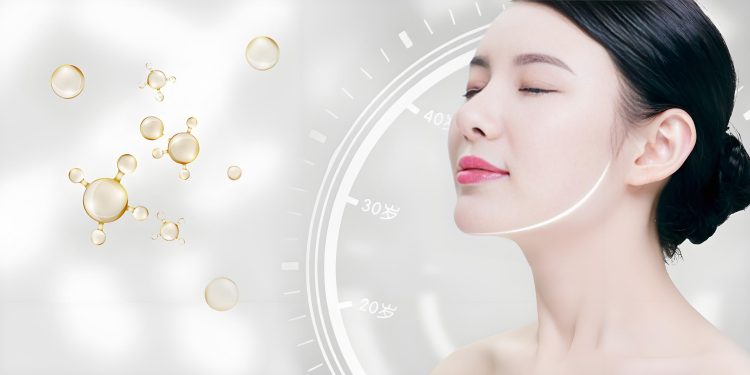In the realm of skincare, where every product promises a glimpse into a flawless, radiant future, the ingredients list often gets overshadowed by bold claims and enticing packaging. But beneath the veneer of marketing jargon lies a world of scientifically-backed, nature-derived compounds that work tirelessly to nurture and rejuvenate your skin. Understanding these ingredients is crucial to crafting a personalized skincare routine that not only addresses your skin concerns but also aligns with your beauty philosophy. This comprehensive guide serves as your key to deciphering the skincare ingredient landscape, revealing the heroes and the supporting actors that together form the backbone of your beauty arsenal.

1. The Powerhouses: Essential Vitamins and Antioxidants
Vitamin C: Renowned for its brightening prowess, Vitamin C (ascorbic acid) is a cornerstone in anti-aging skincare. It stimulates collagen synthesis, fades hyperpigmentation, and protects against UV damage. Look for stable forms like ascorbyl tetraisopalmitate or magnesium ascorbyl phosphate, which are gentler and more stable than pure ascorbic acid.
Vitamin E: This fat-soluble vitamin acts as a potent antioxidant, shielding skin from environmental stressors and enhancing the effectiveness of Vitamin C. Tocopherol (the natural form of Vitamin E) is often paired with Vitamin C in formulations to create a synergistic effect.
Niacinamide (Vitamin B3): A multi-tasking ingredient, niacinamide improves barrier function, reduces inflammation, minimizes pores, and lightens dark spots. Its compatibility with various skin types makes it a universal favorite.
Antioxidant Cocktails: Combining antioxidants like ferulic acid, green tea extract, and resveratrol boosts their efficacy, providing comprehensive protection against oxidative stress and promoting a youthful complexion.
2. Hydration Heroes: The Building Blocks of Moisturization
Hyaluronic Acid: Known for its ability to hold up to 1000 times its weight in water, hyaluronic acid is a must-have for dry and dehydrated skin. It plumps the skin from within, reducing the appearance of fine lines and wrinkles. Different molecular weights of hyaluronic acid target various skin layers, ensuring deep and surface hydration.
Ceramides: These lipid molecules are essential for maintaining the skin barrier. Ceramide-rich products help lock in moisture, prevent transepidermal water loss, and soothe irritated skin. They are particularly beneficial for those with sensitive or eczema-prone skin.
Glycerin: A natural humectant derived from plants or synthetically, glycerin attracts and retains moisture in the skin, making it an excellent base for hydrating formulas. It’s gentle on all skin types, including those prone to acne.
Squalane: Derived from shark liver oil or synthetically (vegetable squalane), squalane mimics the skin’s natural oils, providing deep hydration without clogging pores. It enhances skin elasticity and smoothness, making it ideal for mature and dry skin types.
3. The Exfoliators: Sloughing Off the Past for a Fresh Start
Alpha Hydroxy Acids (AHAs): Glycolic acid, lactic acid, and mandelic acid are popular AHAs that gently exfoliate the skin’s surface, unclog pores, and promote cell turnover. They are effective in treating acne, reducing hyperpigmentation, and refining texture.
Beta Hydroxy Acids (BHAs): Salicylic acid is the most well-known BHA, known for its oil-solubilizing properties that make it ideal for oily and acne-prone skin. It penetrates deep into pores to clear out clogs and reduce inflammation.
Polyhydroxy Acids (PHAs): Gentler than AHAs, PHAs like gluconolactone offer similar benefits without the risk of irritation. They improve skin barrier function, enhance hydration, and even skin tone.
Enzymatic Exfoliants: Derived from fruits and plants, enzymes like bromelain (from pineapple) and papain (from papaya) gently digest dead skin cells, making them suitable for sensitive skin types seeking mild exfoliation.
4. Calming Comfort: Ingredients for Sensitive Skin
Aloe Vera: This soothing plant extract is rich in polysaccharides that hydrate and heal the skin. It’s particularly effective in reducing redness and inflammation, making it a staple in sensitive skin care.
Chamomile Extract: Known for its calming properties, chamomile soothes irritated skin and reduces redness. It contains antioxidants like bisabolol, which aid in healing and repair.
Zinc Oxide and Titanium Dioxide: As physical sunscreens, these minerals provide broad-spectrum protection without the risk of irritation associated with chemical sunscreens. They are gentle on sensitive skin and suitable for all ages.
Licorice Root Extract: This botanical ingredient contains glabridin, a compound with powerful anti-inflammatory and skin-lightening properties. It helps reduce redness, discoloration, and inflammation.
5. Anti-Aging All-Stars: Targeting the Signs of Time
Retinol (Vitamin A): The gold standard in anti-aging skincare, retinol accelerates cell turnover, stimulates collagen production, and fades fine lines and wrinkles. It’s available in various strengths, making it suitable for beginners to advanced users.
Peptides: These short chains of amino acids signal the skin to produce more collagen, elastin, and hyaluronic acid. They improve skin firmness, elasticity, and hydration, making them ideal for addressing aging concerns.
Caffeine: A natural vasoconstrictor, caffeine reduces puffiness and dark circles under the eyes. It also enhances microcirculation, giving the skin a more awake and refreshed appearance.
Coenzyme Q10 (CoQ10): This antioxidant supports cellular energy production, protecting skin from environmental damage and reducing the signs of aging. It’s particularly beneficial for mature skin types.
Conclusion: Embracing a Mindful Skincare Journey
Navigating the vast array of skincare ingredients can feel overwhelming, but with a foundational understanding, you can create a regimen that is both effective and enjoyable. Remember, the key to successful skincare lies in consistency, patience, and choosing products that cater to your skin’s unique needs. Always perform a patch test before introducing new products, and consider consulting a dermatologist for personalized advice.
As you embark on this mindful skincare journey, prioritize ingredients that not only address your concerns but also align with your values—whether it’s cruelty-free, vegan, sustainable, or locally sourced. The beauty industry is evolving, and with it, the opportunity to nurture your skin with ingredients that are as efficacious as they are ethically sourced.












































